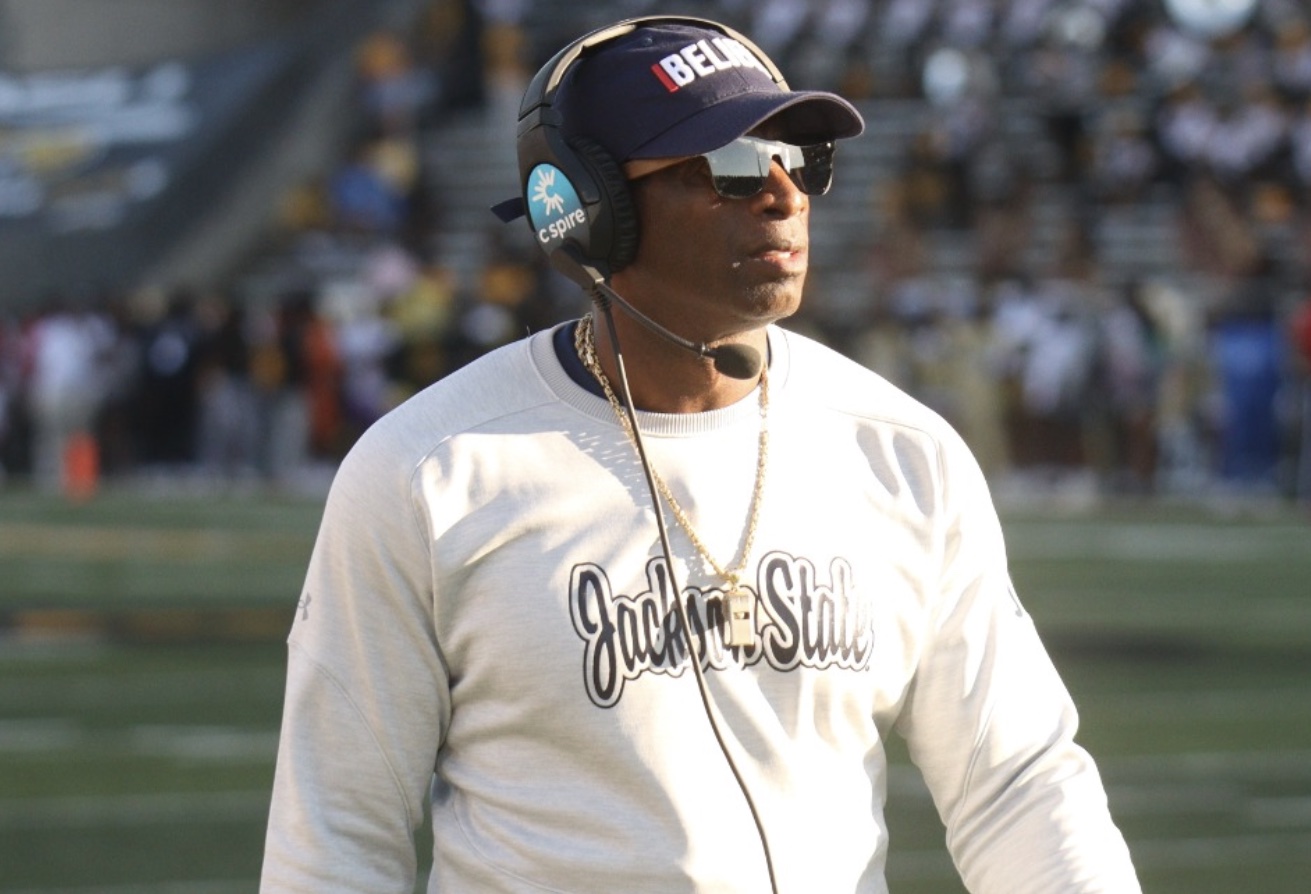In May 2022, Florida A&M’s star football player Isaiah Land considered leaving the HBCU for a school in a Power Five Conference. Land, an NFL prospect heading into his senior year, had the talent to play at any school in the nation and wanted to test the waters in the transfer portal. His top choices were Texas, UCF, Auburn, LSU, Memphis, and UGA, who won the College Football National Championship last season and are currently the No.1 team in 2022.
Deion Sanders gave Land some advice during an interview with 247Sports where he urged the star athlete to stay at the HBCU. “You got everything you want right there,” Sanders said of Land at FAMU. “Be the change; don’t run to change.”
Over the past week, Sanders has been accused by some of running to change by leaving Jackson State University to take the head coaching spot at the University of Colorado, a school in a Power Five Conference.
Some believe that it’s a shame that he left JSU before being the change instead of running to change.
Bomani Jones of ESPN took aim at Sanders for selling a dream about changing the landscape of HBCUs only to leave before graduating a class.
“I wouldn’t have come in the first place and said God sent me here to fix HBCU’s,” Jones said to CNN. “He sold a dream and then walked out on the dream.”
In an interview from October 2022 with 7 Figure Squad, Sanders said he was “called by God” when asked why he decided to coach an HBCU.
“[God] closed those doors and said, ‘I need you to go right there,'” Sanders said. “HBCUs have more problems than a math book, but you got solutions. Not only do you have solutions, you got nerves. Not only do you have nerves, but you have believability and knowledge and wisdom and understanding.”
During Sanders’ three-year stint at JSU, he brought much-needed attention to HBCUs and the financial issues that they face. The attention Sanders garnered helped some HBCU schools receive national TV exposure and top recruits.
It would have taken years, and likely decades for HBCUs to catch up to Power Five schools in terms of talent, but it has occurred before. During segregation, top Black athletes could only attend HBCUs. As a result, the HBCU schools often had more talent in football and basketball than schools in Power Five Conferences. Following segregation, more Black athletes began to attend prominent PWIs due to the increase of resources and national exposure in the media.
However, talented players continued to play at HBCUs in the 1960s and ’70s. Grambling State University’s Doug Williams was the first Black quarterback to win a Super Bowl. And in 1979, FAMU defeated the University of Miami, a team led by future NFL Hall of Fame quarterback Jim Kelly.
In the 1990s, Steve McNair broke records at Alcorn State University before being drafted third overall in the 1995 NFL Draft.
HBCU football was mostly ignored over the following decades until Sanders brought much-needed attention to the schools. He laid a blueprint of what could be possible if HBCUs had more funding and could attract top recruits nationwide. There would disruption in the college football hierarchy if most of the top Black recruits decided to attend HBCUs.
Sanders also spoke about the importance of giving back to HBCUs. “We have to start blessing, what blessed us,” Sanders said in the 7 Figure Squad interview. “A lot of times, we just walk away and don’t even look back over our shoulder.”
By talking the job at Colorado, Sanders walked away from a successful HBCU program to take on the challenge of coaching at a PWI that has been horrible for over 20 years. Colorado only won one game this season and were viewed as an afterthought in college football.
Indeed, Colorado will pay him more, but will the payoff truly be worth it?
Sanders will need to turn a struggling team around within the next three years to even be considered for another coaching job at another Power Five school. If he’s able to win, it’s likely that he’ll get another opportunity at a better school, possibly the school he played for, Florida State University.
But if he fails at Colorado, it could destroy his career as he will likely be held to unfair standards that most white coaches will never experience.
In a meeting with JSU players, Sanders said coaches are “elevated or terminated.” Beyond the money and spruced up facilities, Colorado doesn’t serve as much of an elevation when it comes to play on the football field. In turn, leaving the best HBCU football program for a pedestrian PWI squad currently doesn’t appear like elevation at all.
He will get the opportunity to prove himself as a coach at a Power Five school, but some believe that it’s a shame that he left JSU before being the change instead of running to change.

